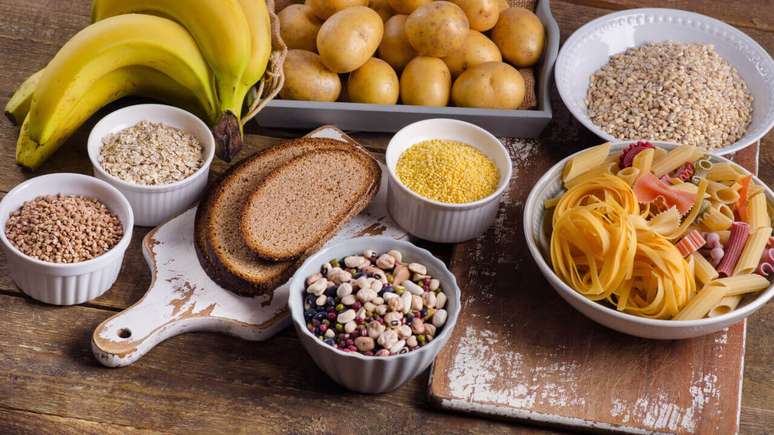Another thesis that serves to put an end to the fear of this macronutrient
The goal of hypertrophy involves many sacrifices, such as respecting the training routine, giving up the consumption of soft drinks, fried foods and alcohol. At the same time, there’s no shortage of options to fit into your routine, which raises the question: How many grams of carbs per day are good for hypertrophy?
Find out the daily grams of carbohydrates for hypertrophy
“An average carbohydrate consumption should be between 4 and 6 g per kg of weight. Example: a 70 kg adult should consume from 280 g to 420 g of carbohydrates per day. This variation depends on the strategy adopted by each muscle mass professional , increase in volume and muscle density. Without worrying too much about definition, you can offer up to 7 g per kg of weight per day”, says the sports doctor at The Corner Sports & Health, Dr. Artur Campos.
We must therefore first eliminate the fear of eating carbohydrates, which are an excellent source of energy. And even with fewer calories than fat, they are released and absorbed more quickly and efficiently than proteins and lipids.
“1 g of carbohydrates has approximately 4 kcal, while 1 g of lipids has approximately 9 kcal. There is a great fear towards the intake of carbohydrates as if a balanced consumption of this macronutrient was sufficient to generate excess weight,” he added Dr. Artur.
Is there “the best carbohydrate” for hypertrophy?
“Carbohydrates that generate greater satiety tend to have a better result, since the professional maintains a glucose plateau, thus avoiding ‘escapes’ from the diet. Examples: foods rich in fiber and whole grains, legumes, cereals, roots, such as cassava , sweet potatoes, oats, baroa potatoes, sweet potatoes and other foods,” Campos confirmed.
Increased carbohydrates in hypertrophy
Before training, you can opt for carbohydrates with a higher glycemic load, which can act as an energy source during exercise. Medium and low glycemic sources may be present throughout the rest of the day.
“Carbohydrates can be divided into those with a low glycemic load below 10, medium between 10 and 19 and high above 20. After training, foods with a high glycemic load can be consumed to recover glycogen reserves and facilitate sensitization to insulin, one of those responsible for the supply of amino acids and glucose into cells,” he explained.
Protein or carbohydrate: what is important in hypertrophy?
“Both. High-protein diets without good sources of carbohydrates do not guarantee a good substrate and a good source of energy for intense training, while a low-protein diet with an excess of carbohydrates hardly produces satisfactory results,” he underlined.
What hinders muscle growth?
“Due to the lack of consistency, many practitioners are able to strictly follow diets and workouts Monday through Thursday, but weekends see excessive alcohol consumption, sleep deprivation, and total dietary dysregulation. It’s as if we’re trying to scale a staircase from Monday to Thursday for four steps, but from Friday to Sunday we go down three”, concluded Dr. Artur Campos.
Source: Terra
Ben Stock is a lifestyle journalist and author at Gossipify. He writes about topics such as health, wellness, travel, food and home decor. He provides practical advice and inspiration to improve well-being, keeps readers up to date with latest lifestyle news and trends, known for his engaging writing style, in-depth analysis and unique perspectives.









